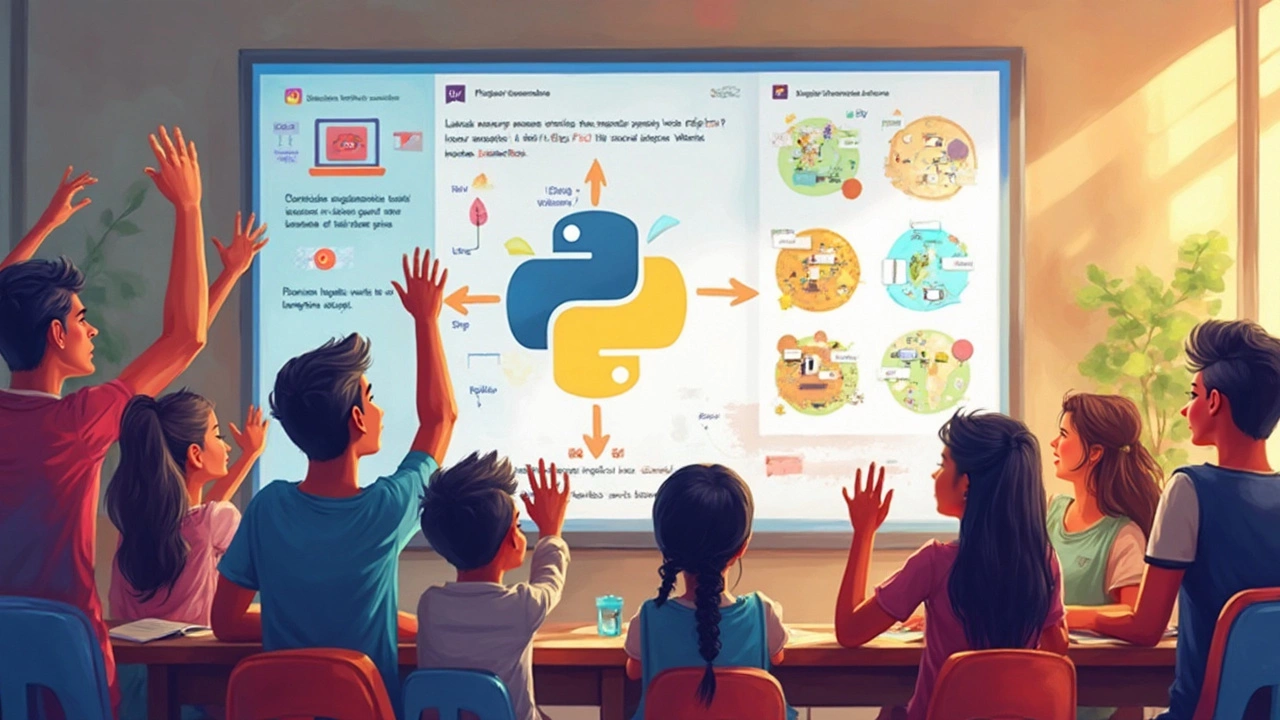Learn Coding: Your First Steps in Programming
Ever wondered how apps, games, or websites are built? The answer is coding, and you don’t need a computer science degree to get started. In the next few minutes you’ll see exactly what you need, where to find free tools, and how to build confidence by writing real code.
Why Learning to Code Is Worth Your Time
Coding is more than a job skill – it’s a way to solve problems, automate boring tasks, and turn ideas into reality. Even a basic understanding can boost your résumé, help you earn extra cash on freelance platforms, or simply make everyday tech feel less mysterious. Plus, the learning curve has flattened: interactive tutorials, video lessons, and community support let you progress at your own pace.
How to Start Coding Today
1. Pick a language that matches your goal. If you want to build websites, start with HTML, CSS, and JavaScript. For data analysis or AI, Python is the go‑to choice. Mobile app fans can try Kotlin (Android) or Swift (iOS). Choose one and stick with it for the first few weeks.
2. Set up a free development environment. Most languages work right in your browser. Websites like Replit, Glitch, or CodePen give you an instant editor and console – no installation needed. When you’re ready, download VS Code; it’s lightweight and supports every major language.
3. Follow a project‑based tutorial. Tutorials that guide you to build something tangible (a personal webpage, a calculator, a simple game) teach concepts faster than isolated exercises. Sites such as freeCodeCamp, Codecademy, and The Odin Project organize lessons into bite‑size modules.
4. Write code every day. Consistency beats marathon sessions. Even 20 minutes of coding daily cements syntax in your memory. Use a habit tracker or set a reminder on your phone to keep the momentum.
5. Join a community. Forums like Stack Overflow, Discord coding servers, or local meetups let you ask questions, share progress, and get feedback. Seeing how others solve problems expands your toolbox.
6. Debug like a detective. Errors are inevitable. Read error messages, use console.log (or print), and break problems into smaller parts. Over time you’ll recognize patterns and fix bugs faster.
7. Build a portfolio. As you finish small projects, push them to GitHub. A public repository shows future employers or clients that you can turn ideas into working code.
Remember, the goal isn’t to master everything overnight. Focus on one language, one project, and one habit at a time. When you feel comfortable, you can branch out to other languages or more complex applications.
Ready to give it a try? Open a browser, go to replit.com, select “Create a repl,” choose JavaScript, and type console.log('Hello, coding!');. Hit run – you’ve just written and executed your first line of code. Celebrate that moment, then add a button that changes color when clicked. That’s how you turn curiosity into skill, one tiny step at a time.
Learning to code opens doors you didn’t know existed. Keep experimenting, stay patient, and enjoy the process of building something from nothing. Happy coding!
How Fast Can I Learn Coding? Proven Paths and Timelines for Beginners
Curious how fast you can learn coding? Uncover timelines, proven study hacks, real stories, and smart tips that get you from zero to coder sooner.
read moreIs 1 Hour a Day Enough to Learn Coding?
Wondering if an hour a day is enough to learn coding? This article digs into real results, what you can actually achieve, and how to make that hour count. We'll look at common hurdles, mistakes to avoid, and practical tips. Whether you've got a packed schedule or just want to maximize your efforts, you'll find straight answers here. Get ready for a sharp look at coding progress, the reality of time investment, and how to learn smarter.
read moreIs Python Hard to Learn?
Python is often praised for its simplicity, but is it truly easy for everyone to learn? This article explores its user-friendly syntax, essential concepts, and the resources available for beginners. Dive into Python's practical applications and find out if it's the right coding language for your needs. Get some handy tips to make your Python learning journey smoother.
read moreShould You Learn Programming or Coding?
Deciding between learning programming or coding can be tricky. While coding focuses on writing the actual set of instructions for computers, programming involves designing a complete solution to problems. Your choice depends on your career goals, personal interests, and how deep you want to dive into tech. Understanding the differences can help you make the right decision for your future.
read moreCan I Teach Myself Coding?
Learning to code on your own is totally doable and offers a flexible way to dive into the world of programming. With the right resources, mindset, and dedication, you can start building your coding skills from scratch. Explore practical tips and find out what makes self-taught programmers successful. This guide will help you kickstart your coding journey without enrolling in formal classes.
read moreHow Long Does It Take to Learn Coding?
Learning to code isn't a one-size-fits-all journey. It can take weeks or even years, depending on factors like the language you choose, your prior experience, and the time you dedicate. For many, starting with a simple language like Python accelerates progress. Both online courses and practice play crucial roles in developing proficiency. Ultimately, persistence and regular practice are key to mastery.
read more




